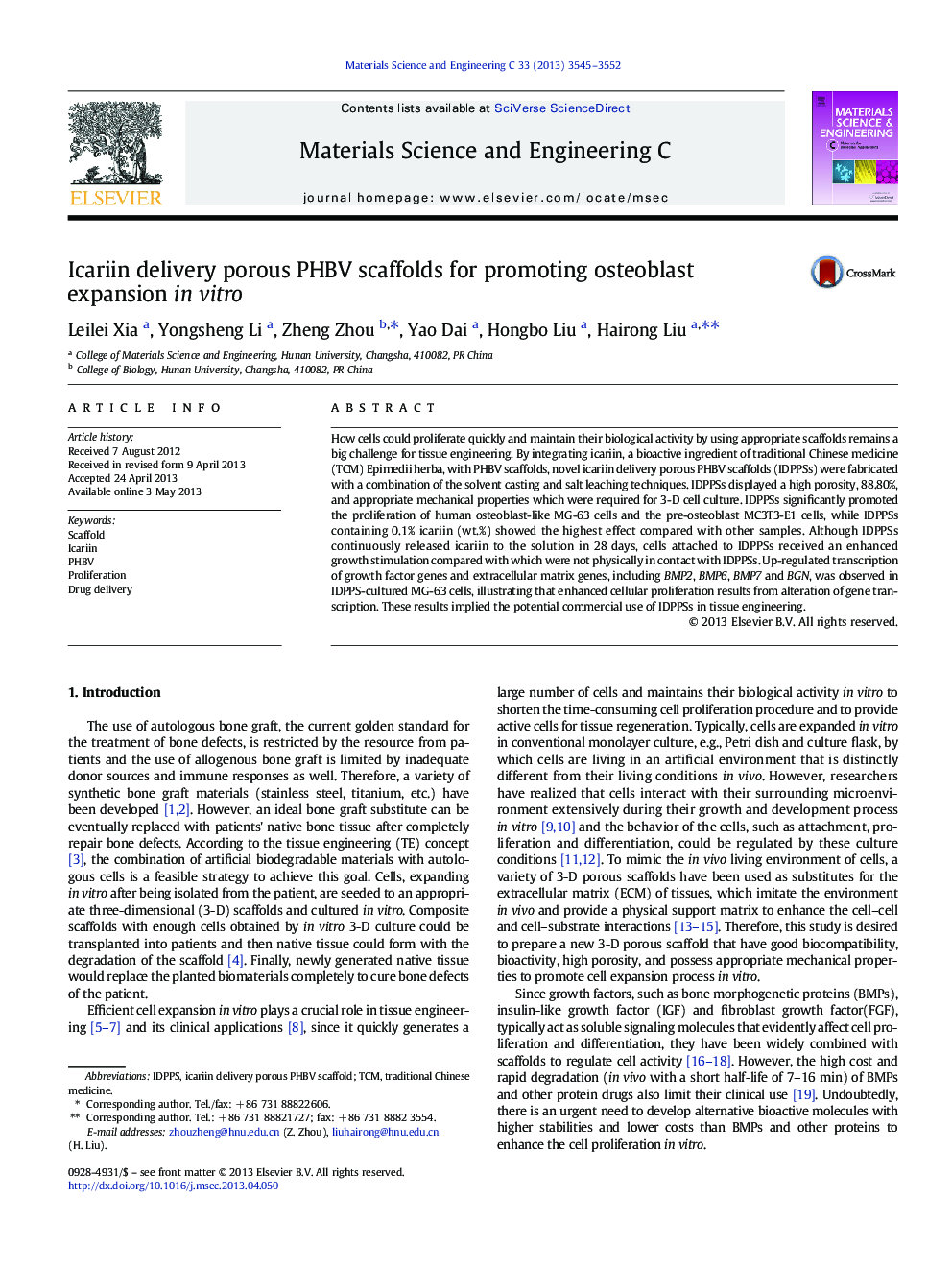| Article ID | Journal | Published Year | Pages | File Type |
|---|---|---|---|---|
| 1429209 | Materials Science and Engineering: C | 2013 | 8 Pages |
•IDPPSs were fabricated with a combination of the solvent casting and salt leaching techniques.•Our work illustrates that IDPPSs can significantly facilitate osteoblast expansion in vitro.•IDPPS can continuously release icariin and strongly influence adhered MG-63 cells.•IDPPS promotes the cell proliferation via stimulating the transcript of BMP genes and ECM gene.
How cells could proliferate quickly and maintain their biological activity by using appropriate scaffolds remains a big challenge for tissue engineering. By integrating icariin, a bioactive ingredient of traditional Chinese medicine (TCM) Epimedii herba, with PHBV scaffolds, novel icariin delivery porous PHBV scaffolds (IDPPSs) were fabricated with a combination of the solvent casting and salt leaching techniques. IDPPSs displayed a high porosity, 88.80%, and appropriate mechanical properties which were required for 3-D cell culture. IDPPSs significantly promoted the proliferation of human osteoblast-like MG-63 cells and the pre-osteoblast MC3T3-E1 cells, while IDPPSs containing 0.1% icariin (wt.%) showed the highest effect compared with other samples. Although IDPPSs continuously released icariin to the solution in 28 days, cells attached to IDPPSs received an enhanced growth stimulation compared with which were not physically in contact with IDPPSs. Up-regulated transcription of growth factor genes and extracellular matrix genes, including BMP2, BMP6, BMP7 and BGN, was observed in IDPPS-cultured MG-63 cells, illustrating that enhanced cellular proliferation results from alteration of gene transcription. These results implied the potential commercial use of IDPPSs in tissue engineering.
Graphical abstractFigure optionsDownload full-size imageDownload as PowerPoint slide
